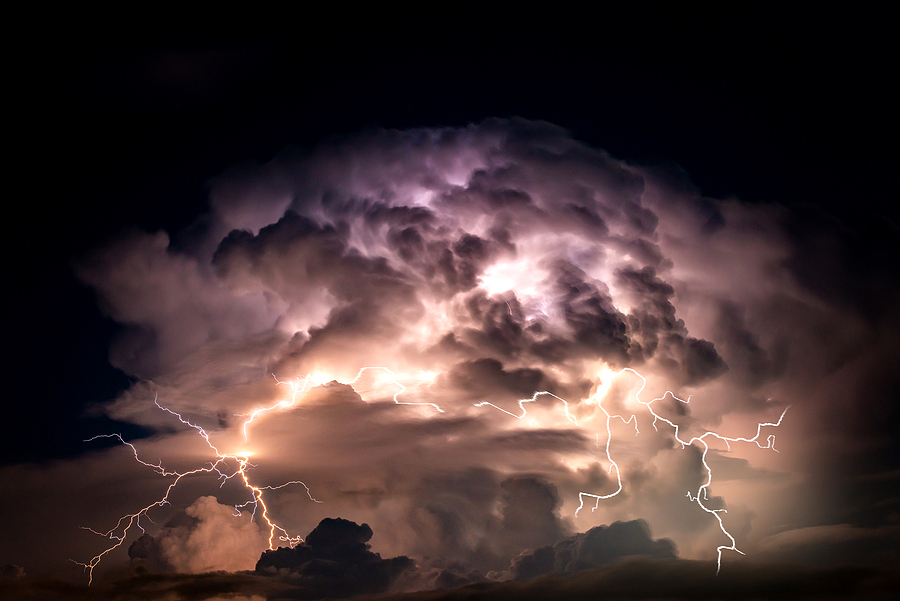It is safe to say we all tend to learn and grow more spiritually from difficulty than from the good times. Both reveal God’s presence in our lives, but our hard heads and hearts seem to need a good bit of humbling before we “get it.” Most people write more powerfully under duress.
A couple months ago, while reading a manuscript of a long-time acquaintance, the tone surprised me a bit. I wondered why it was such a sober, introspective, and deeply moving work. I expected something different. Maybe a bit more positive and uplifting?
I then learned of his substantial personal trials and storms since we last connected. At that point, the manuscript made sense.
Generalities often are not completely accurate, but some of the best writing comes from places of deep pain. Most we never know about. We only know something was well written and leave it at that. Great perspective and even better advice come when our plans fail, life falls apart, and God redeems it all.
The apostle Paul was in prison during much of his letter-writing, which ended up in the biblical canon.
There seem to be two kinds of books in the Christian market, those written from the mountaintop of authority and success and those written from the valley and deep suffering.
Throughout history, much of the world’s great literature came along a difficult road for the author. In many cases, we never knew what was going on behind the scenes. We just loved the book.
The deeper the valley, the more intense the storm, the more unbearable the season of life, the clearer picture you have of God’s heart, whether you fully realize it or not.
Today, the challenge for all Christian writers is to place their personal stories in the right balance with the great insight they gained. Too much “you,” and publishers often reject it. There is no perfect formula. In general, agents and publishers see big red stop signs when there is too much personal story in anything we consider.
I find it interesting that many best-selling, secular nonfiction books come from mountaintop perspectives, from successful people doing what they do best. And the books that contain trials and challenges generally show how the author overcame failure with their own power and personal fortitude and eventually achieved great success, to their great personal credit.
Many Christian books come from stormy perspectives as the authors found themselves with no hope at the end of their ropes. But God had something else in mind. He reached down and rescued them. By God’s grace we were saved.
Yeah, not as interesting as the story of the self-saved person who succeeded because of their own force of will. God’s mercy and grace is always difficult to explain.
Christ-followers know the Redeemer of their stormy stories, the source of their strength and hope, the true hero of their stories, and the One worthy of their worship.
The difference between Christian and secular writing is who gets the credit for victories.



 5 Ways to Reboot Your Writing Life
5 Ways to Reboot Your Writing Life

Tonight the storm is tossing me,
harsh thunder loud-portending doom,
but still I walk in victory
through the waves’ mad frothing spume.
Tonight I know I cannot win,
so much ground’s been lost this year,
but I find the strength to grin,
and need not wipe a single tear,
for though my dreams have gone to dust,
surrounding me in still repose,
and once-bright hope is limned in rust,
there’s joy within the soul that knows
that to die is gain, not loss,
and Jesus waits beside my Cross.
I always enjoy your writing. I always wonder how you come up with it so quickly.
I was actually just discussing this with a writing acquaintance the other day. I wrote a piece last year that felt like literal war to finish. I was in the middle of a health crisis and facing the reality of leaving my full time day job (partially because of the health trouble). Less than a year later, that piece is a reader favorite, and I’ve gotten so much positive feedback from it.
God always provides a way through, but that doesn’t mean the way will be easy.
Dan, Your posts always give me much to think about. This one especially.
The balance between too much personal story and not enough is not easy but oh so important. I encourage my coaching clients to use personal stories in writing and speaking but I will now emphasize balance as you suggested. How does a writer perform this balancing act? I’m thinking the answer must be that the story must make the point. If it doesn’t reinforce the point, it probably needs to be cut.
What do you think is the best way to achieve balance?
Good question Karen. For a well-known/celebrity person, talking about themselves is expected. Every little detail. For everyone else, I think the use of personal info is to illustrate a point, as you say, to reinforce a point, to show how the writer knows something to be true, or to show how God taught them a certain thing.
And the personal stuff is usually a paragraph here and there. Editing a personal story is more about cutting out what isn’t necessary.
IMHO.
Always interested in your personal opinion — humble or otherwise. Blessings
Just after I published my first book, which is a Bible study over Psalm 23, I experienced a stroke. I was only forty and it was the beginning of a long “storm” in my life. It seems that Jesus had my write my test before I took it.
Most of what I write is overflow from one long conversation with Him and it’s in the storms when those conversations become most clarified.
Thank you Dan. You always have such wisdom to share!
What a great reminder to strike a careful balance when using our own stories. As believers we must humbly understand none of this is really about us.
This writer can attest to your article. Several years ago, the only panacea to a deep, stormy time in life for me was writing original worship music. People have told me those songs ministered to them when they also went through struggles. Great post. Thanks!
This post rings so true to me, Dan. One of my favorite hymns is “It is Well” which beautifully illustrates your point about storms. The first time I heard it, I had no idea of the story behind it, yet it still brought tears to my eyes. Jesus tamed the storm with His divine power. We do it with our writing.
Back stories to hymns are fascinating. While not a hymn per se, the story behind “I Heard the Bells on Christmas Day” is unreal.
https://www.thegospelcoalition.org/blogs/justin-taylor/the-story-of-pain-and-hope-behind-i-heard-the-bells-on-christmas-day/
This spoke to me. I’m working with Cec and he helps me find that balance you spoke of. I write from my storms and sometimes am too honest and detailed. Sometimes, though, I write quickly and only give bones, no meat. Cec sees through me and urges me to rethink or restate what I “really” mean. My life is mostly storms but my God is my peace. The Lord has proven Romans 8:28 to me time and again. Redemption happens daily, sometimes hourly. I’m so grateful for the love of Christ and how He has made life worth living in between the storms.
Yes! One of my all time favorite YA fantasy novels, I found out later that the author wrote it while her husband was dying. The grief and the love came through.